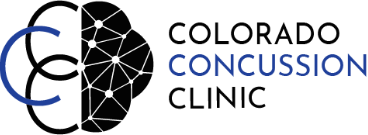I can’t fall asleep. I can’t stay asleep. I’m so tired all the time. I feel like a zombie.
Do any of these sound familiar? If so, you are not alone! Sleep disturbances are among the most common issues reported by patients following a concussion. Issues with sleep can include sleeping less than normal, sleeping more than normal, difficulty falling asleep, difficulty staying asleep, and of course, excessive fatigue. Research shows that sleep impairments following brain injury are associated with poorer overall recovery, cognitive impairment, and overall lower productivity (1,2).
One factor that has a big influence over our sleep cycle is the production of a hormone called melatonin. This is a hormone made by our brain, and is normally released in the evening and overnight. Appropriate melatonin levels are important for falling asleep more easily and getting more REM sleep. Melatonin production is inhibited by light, which is why it is released at night. Something important to know, is that melatonin levels are not just impacted by natural light - artificial light also inhibits the production of melatonin. This includes light bulbs as well as blue light from electronics. Research has found that following traumatic brain injury, patients have significantly lower levels of evening melatonin production compared to people of the same age without an injury. This also correlated to people with brain injury having lower time spent in REM sleep (3).
Given that sleep disturbances are so prevalent following concussions, and lack of sleep is detrimental to overall function, it’s important to set yourself up for success when it comes to your sleep! Here are some sleep hygiene tips for naturally improving your sleep cycle and decreasing restless tossing and turning:
Ensure you are allowing your body to sleep for an adequate amount of time.
Establish a routine for relaxation 1 hour prior to going to bed.
Limit naps during the day to 30 minutes.
Limit caffeine consumption to morning only.
Avoid alcohol. It will interfere with your ability to stay asleep.
Avoid large meals close to bedtime.
Expose yourself to natural daylight for at least 1 hour daily, this helps your body recognize when it’s time to be awake and asleep.
Try to get 30 -60 minutes of exercise daily.
Limit screen time (phone, TV, computer) starting 1 hour before bedtime.
Stay well hydrated.
Keep your sleep environment cool and as dark as possible.
Use “white noise” to help block out other noise and assist sleep.
If you are unable to sleep, get up, do a quiet relaxing activity then return. Do not expose yourself to lights or computers during this time.
References:
Grima NA, Rajaratnam SM, Mansfield D, et al. Efficacy of melatonin for sleep disturbance following traumatic brain injury: a randomized controlled trial. BMC Med. 2018;16:8.
Kostyun RO, Milewski MD, Hafeez I. Sleep Disturbance and Neurocognitive Function During the Recovery From a Sport-Related Concussion in Adolescents. The American Journal of Sports Medicine. 2014;43(3):633-640.
Shekleton JA, Parcell DL, Redman JR, et al. Sleep disturbance and melatonin levels following traumatic brain injury. Neurology. 2010;74:1732-1738.
- Kate Smulligan

